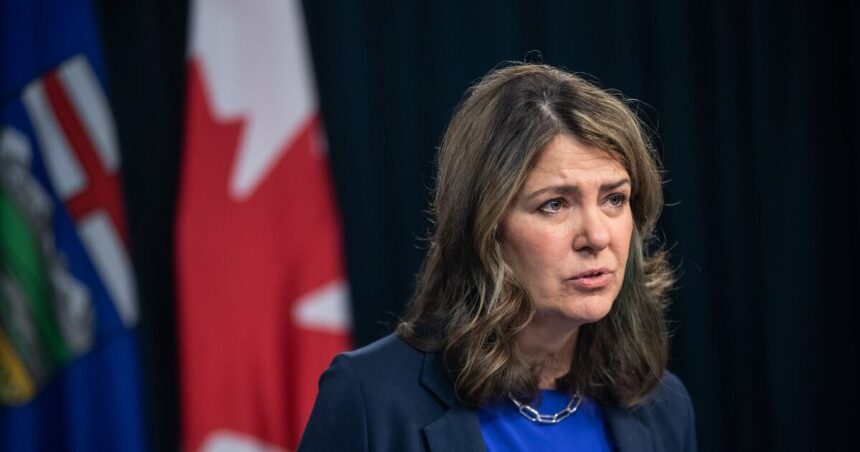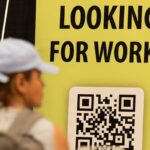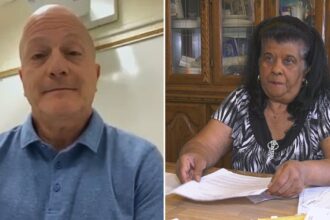In a move that has ignited fierce debate across Canada, Alberta Premier Danielle Smith is standing firmly behind her government’s controversial new library policy, declaring that “pornography is a problem” that needs to be addressed in school settings. The policy, which takes full effect this September, requires all school libraries in the province to remove materials deemed “age-inappropriate” based on guidelines that critics say open the door to widespread censorship.
“We’re giving parents the confidence that when they send their children to school, they won’t be exposed to sexually explicit content,” Smith stated during a press conference in Calgary yesterday. “This isn’t about banning books—it’s about ensuring content matches developmental appropriateness.”
The new regulations require school boards to establish review committees tasked with evaluating library materials against criteria that include restrictions on “explicit sexual content” and “ideologically-driven gender identity theories.” According to documents obtained by CO24 News, schools have already begun pulling hundreds of titles from shelves in anticipation of the September deadline.
Education Minister Demetrios Nicolaides defended the policy, citing parental complaints about books containing graphic sexual content. “Parents have brought forward legitimate concerns about materials their children have accessed in school libraries,” Nicolaides said. “We’ve created a balanced approach that respects parental authority while maintaining educational quality.”
However, the Alberta Teachers’ Association has condemned the policy as “government overreach that undermines professional judgment.” ATA President Jason Schilling pointed out that schools already have processes for reviewing controversial materials. “This policy creates a climate of fear where educators self-censor to avoid potential repercussions,” Schilling told CO24 Canada.
The Canadian Civil Liberties Association has raised constitutional concerns, with legal director Cara Zwibel warning that the policy’s vague terminology could lead to discriminatory implementation. “Terms like ‘age-inappropriate’ and ‘ideologically-driven’ are subjective and could be weaponized against LGBTQ+ content in particular,” Zwibel explained.
This controversy arrives amid a broader North American trend of challenges to school library materials. According to PEN America, book challenges have increased by over 200% in the past three years across Canada and the United States, with works addressing sexuality, gender identity, and racial issues being disproportionately targeted.
The policy has created deep divisions within Alberta communities. At a school board meeting in Edmonton last week, parent Sarah Jennings expressed support: “I should have final say over what sexual content my 11-year-old accesses, not librarians or publishers.” Conversely, high school librarian Michael Chen voiced concern about the “chilling effect” on intellectual freedom: “We’re seeing classic literature and award-winning contemporary works being removed out of fear.”
Education experts warn about potential long-term consequences. Dr. Eleanor Richardson, Professor of Education Policy at the University of Calgary, told CO24 Politics: “When we remove books that reflect diverse experiences, we risk teaching students that certain identities aren’t worthy of representation. The psychological impact on marginalized youth can be profound.”
As implementation moves forward, school districts are scrambling to interpret the guidelines. Calgary Public School Board has established a three-tier review system, while rural districts report struggling with limited resources to conduct comprehensive reviews before the deadline.
The question remains: in our efforts to protect children from inappropriate content, are we inadvertently creating educational environments where certain perspectives and identities are systematically erased from the narrative? The answer may shape a generation of Alberta students’ relationship with literature and critical thinking.
























